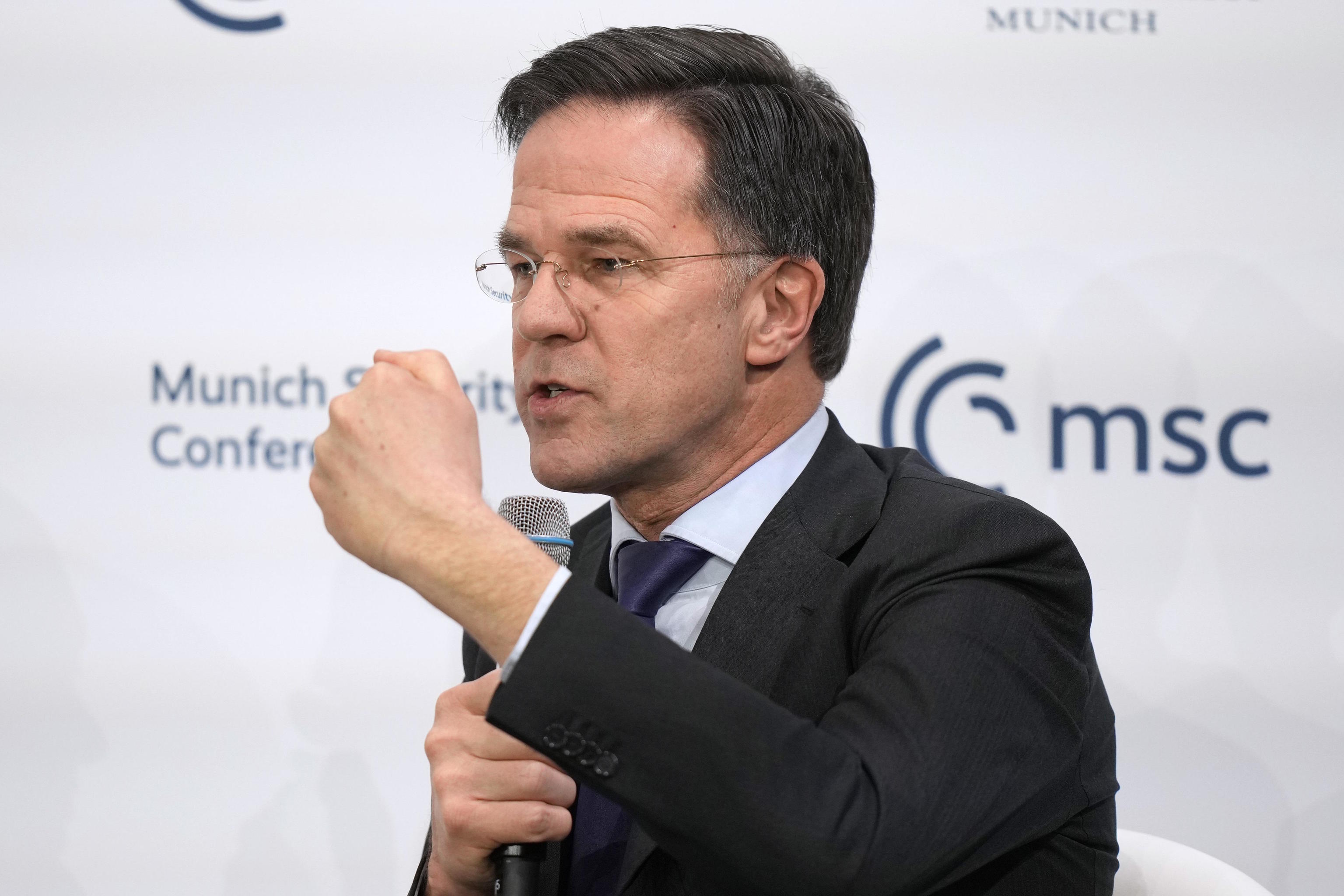NATO's Secretary-General has already outlined what the new Defense investment target will be, most likely to be agreed upon at the Alliance's meeting next June in The Hague. "Considerably more than 3%," Mark Rutte stated on Thursday from Bratislava (Slovakia), adding that the deadlines to reach that figure must be "ambitious." In other words, no agreeing on a figure and then procrastinating its fulfillment.
These statements already increase pressure on countries that do not meet the current 2% target, with Spain standing out as the country that spends the least of NATO in relation to Gross Domestic Product (GDP). But in case there was any doubt that Rutte was addressing these countries, the Alliance's top leader has stated that he is "in active and intense contact" with the respective governments of those nations to "accelerate and reach 2%."
"And I warn them that if they do not respond to my calls, they could receive a call from a very friendly man in Washington, who may have less patience," Rutte emphasized, referring to the President of the United States, Donald Trump, who demands greater Defense spending from Europe.
To make it self-sufficient and to be able to face Russia, as the magnate has decided to limit the U.S. presence across the Atlantic. That it will leave, as the defense of Europe is no longer a priority for the U.S. This threatens to end NATO or, at least, to change the Alliance as it was known until now.
Rutte is desperately trying to prevent this from happening, and one way to convince Trump not to end Atlanticism is through Defense spending. But for some in Brussels, the former Prime Minister of the Netherlands has directly embraced the magnate despite planning to impose peace in Ukraine alongside Vladimir Putin without considering anyone else.
Specifically regarding the potential peace process in Ukraine, Rutte has stated that the agreement reached must involve "a lasting peace where Russia does not try to seize a single square kilometer more of Ukrainian territory." This is a very present fear in the European capital, where the failed Minsk agreements are cited as an example, which on the two occasions they were signed, did not lead to lasting peace. "We do not want a Minsk 3.0," is repeated in NATO.
The Secretary-General of the North Atlantic Treaty Organization has also referred to the so-called security guarantees, which are the means and tools to be applied to ensure peace after negotiations. "NATO Allies are actively discussing what this should entail. Although much remains to be decided, there is no doubt that Europe has an essential role to play in ensuring peace in Ukraine," Rutte stated.
He did not want to specify further or indicate whether a European peace mission is possible or not, a point that has been much speculated about. Today, the British press reports that the British Prime Minister, Keir Starmer, and the President of France, Emmanuel Macron, will present a plan to Trump next week that includes the deployment of up to 30,000 European soldiers as well as the use of British Typhoon fighter jets .
Quoting "Western officials," three newspapers (The Guardian, The Financial Times, and The Times) mention that number of soldiers to reinforce the air and sea security of Ukraine, with a "minimal" presence on the ground, far from the front line, as reported by AFP. However, the number is far from the over 100,000 soldiers that Ukrainian President Volodymyr Zelensky has demanded, and the possibility of a mission is something that, in principle, would be welcomed by the U.S. President but rejected by Putin.
